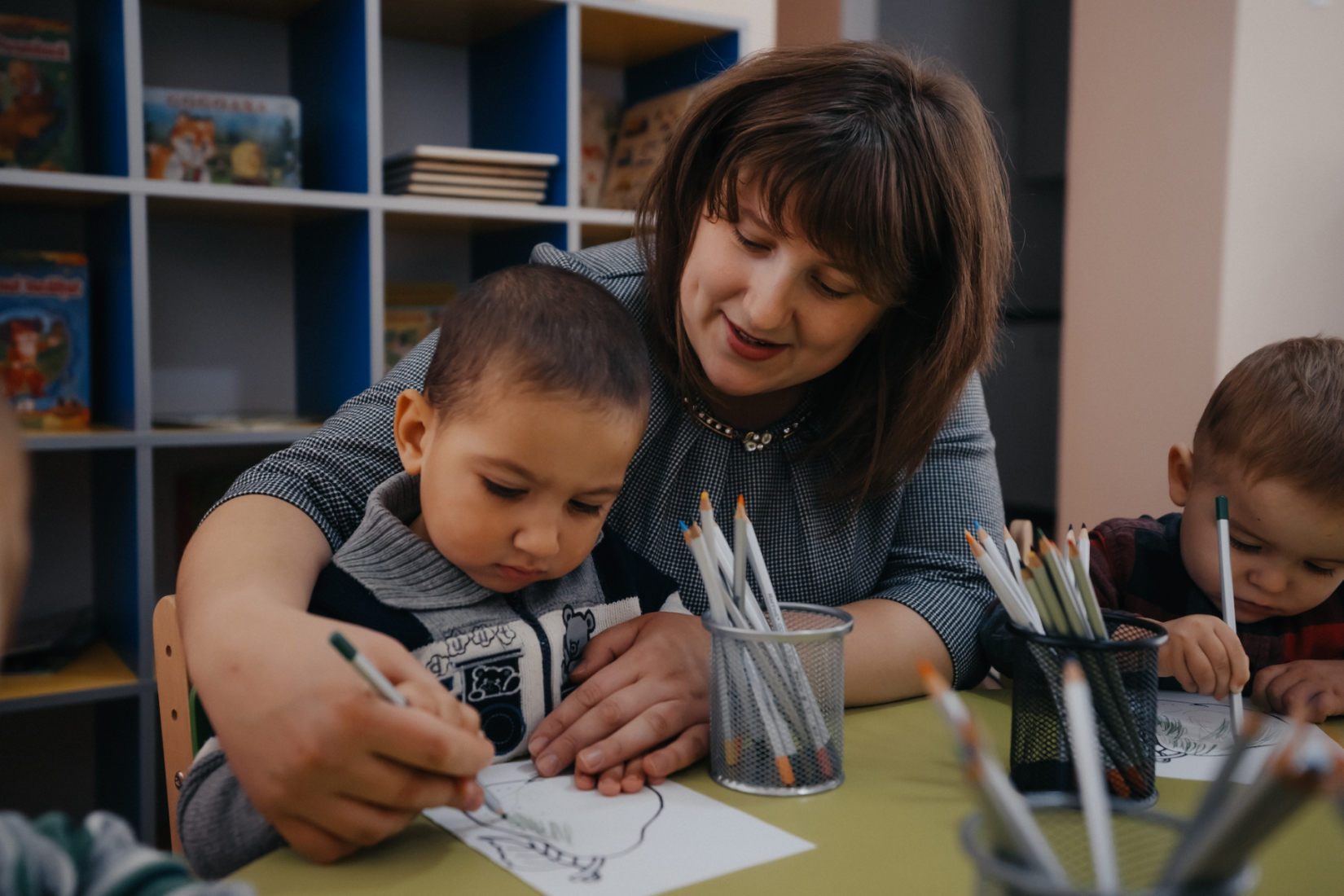Breaking Barriers, Building Futures: 18,500 Children Reap the Benefits of child centered Education
14 February 2023
- With EU support, specialists from Cahul and Ungheni learned about formative assessment

Child-centered education is no longer a foreign term for teachers in Cahul and Ungheni regions. Almost 3000 educators and primary school teachers have learned about formative assessment and effective teaching techniques, due to development of education services for children and adolescents in Cahul and Ungheni.
Unlike summative assessment, which is about testing knowledge, formative assessment aims to understand and improve children's competences. UNICEF, in partnership with the "Step by Step" Education Programme, has strengthened the implementation of the Child-Centred Methodology (CCM), focusing specifically on formative assessment in all preschool and primary schools in the Cahul and Ungheni regions. During the past year, 15 training courses wereorganized. This includes two online courses for preschool and primary school teachers, methodologists, and preschoolinspectors from the teams of the local education directorate. The training and mentoring activities were carried out in theframework of the "EU4Moldova: Key Regions", funded by the European Union and implemented by the United NationsDevelopment Programme (UNDP) and the United Nations Children's Fund (UNICEF).
"Quality inclusive education, based on a child-centered teaching-learning-assessment process, is one of UNICEF's priorities. The concept of learner-centered education is promoted at the public policy level, and thanks to EU support and partnership with the "Step by Step" Education Programme, we can train teachers in Cahul and Ungheni in formative assessment", said Jana Midoni, Education Officer at UNICEF Moldova.
Now, in Ungheni and Cahul, some tests applied in schools to assess knowledge are replaced by practical activities that allow children to embrace both a leadership role and that of an observer or listener. In this way, they are given space to show their creativity, interact with peers and apply in practice the important things they learn. On the other hand, by using formative assessment techniques, educators and teachers understand how to adjust teaching activities so that learning is an enjoyable activity for children.
"We train teachers to break away from an authoritarian education system. We encourage the educators to engage children in various activities and encourage them to express themselves", said Cornelia Cincilei, Director of the "Step by Step" Educational Programme.
Formative assessment, as part of child-centered education, is inspired by the Finnish and Estonian education systems, which are considered the most effective worldwide. Like Finland, where there are no rankings, comparisons, or competitions between children or schools, ”Step by Step” specialists help create an education and training system based on cooperation, communication, and ensuring fair education for all children. Teachers have autonomy in implementing the curriculum and determining the appropriate teaching and assessment methods with pupils and parents. All pupils have equal opportunities, including those in rural areas, and are intrinsically motivated and actively involved in all three phases of learning: planning - learn - assess.
In Ungheni and Cahul, more than 9500 preschool and 9000 primary school pupils benefit from improved education services, thanks to the successful implementation of peer learning. Teachers and educators from these two regions benefited from 24 mentoring sessions. They participated in 13 events dedicated to the competent observation, interpretation, and documentation of children's cognitive, physical and socio-emotional development, as well as the integration of the results of the observations into daily teaching practices.
Tatiana Uzbriș has been working in the education system for 15 years and is currently a teacher in Kindergarten no.9 in Ungheni. Tatiana participated in the online training on formative assessment. Although she told us that even before the courses, she used various methods of observing and assessing children, the mentoring helped her structure her knowledge better and apply it more successfully.
"The assessment methods learned help me to plan my daily activities with children effectively. I observe their reaction, behavior, and interaction and, based on these observations, I can suggest games and ask them questions that challenge them to think without feeling embarrassed that they might be wrong or that their answer might not be accepted. I create situations where they can initiate an activity themselves, model a piece of work or invent a game. I encourage them to create throughout the educational environment without being constrained by certain limits or ideas”, added Tatiana Uzbriș.
The “Step by Step” specialists carried out training on three different modules adapted to each target group, including guides, explanatory presentations, videos, and other information for the specialists' continuous support.
"I have learned to train children so that they understand that they are at the center of education. The principle I follow is to give to children and take from them, not anytime and anyhow, but to each one according to their possibility and interest. It is important to know how to combine the multiple intelligences of children harmoniously", added Angela Ujacov, a teacher at "Alexandru Donici" Primary School in Cahul municipality.
More than 100 kindergartens and 90 primary schools have benefited from support under the project, with a total value of 1.5 million lei.
The program "EU4Moldova: Key Regions" supports the facilitation of inclusive and sustainable local socio-economic growth and improves citizens' living standards in Ungheni and Cahul municipalities. The program, to be implemented by 2024, has a total budget of €23.3 million.
This article was produced as part of the EU4Moldova Programme: Key Regions, funded by the European Union and implemented by the UNDP and UNICEF. The publication's content belongs to the authors and does not necessarily reflect the views of the European Union.



